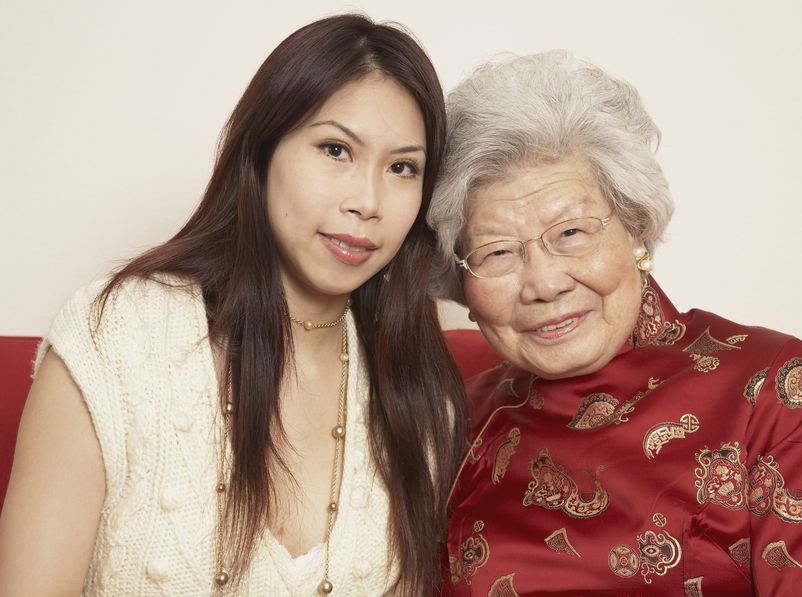Okinawan Culture: Key to Longevity
If someone created a pill that could be taken to increase lifespan, would you take it for longevity? As a society, we are infatuated with longevity and vitality. Some cultures are certainly closer to figuring out the key than others. What makes one culture healthier overall than another?
Since 1976, researchers for the U.S. National Institutes of Health and Japan’s Ministry of Health have been following Okinawan’s who are older than 100 (yes, OVER 100) in the Okinawa Centenarian Study (OCS). Okinawans are among the world’s longest-lived people. Not only do they have longevity, but these latter years are free from disabilities. Okinawans have a fifth the heart disease, a fourth the breast and prostate cancer, and a third less dementia than Americans, according to Craig Willcox of the Okinawa Centenarian Study.

Longevity
So who are the Okinawans?
Okinawa is an island located about 300 miles from Japan. It consists of a chain of islands spread in an arc (Ryukyu archipelago) with the northern end of the chain near Amami Islands of Kyushu and the southern end near Taiwan.
It is the largest and most populous of the Ryukyu Islands that make up Okinawa prefecture. Okinawa prefecture was an independent kingdom (Kingdom of the Ryukyus) until 1879, when it was annexed by Japan and later became a Japanese prefecture. Historically, Okinawa has had a unique culture, including language, music, and religion. However, little is known for certain about the origin and genetic structure of its people.
What is their lifestyle like?
Activity is built into daily routine. Rather than going to the gym or attending a crossfit class, Okinawans take frequent walks and enjoy gardening. Additionally, rather than sitting at a table, they enjoy their meals on the floor. As a result, Okinawans build lower body strength.
Through this study, they have discovered several key traits that appear to play large roles in the long lifespans of Okinawans. Diet, of course, plays a role, and we’ll discuss that last, but take a look at these other factors.
One of the most durable theories of aging and longevity is the free radical theory.
This theory postulates that damage from free radicals (unstable molecules), generated mainly from metabolizing food into energy, ultimately damages vital body molecules (tissue, DNA, etc.). This damage accumulates with time until, like an old car, we fall apart. In support of this theory, one of the most important findings in free-radical research has been that eating fewer calories increases life span (Sohal RS, et al. Science 1996;273:59-63; Heilbronn LK, et al. Am J Clin Nutr 2003;78:361-9). The initial evidence that this may work in humans has been indirect and based on observation of the low caloric intake of the Okinawans and their long life expectancy (Willcox DC, et al. Biogerontology 2006). More direct evidence suggests that Okinawans following the traditional ways have low blood levels of free radicals. The elders had significantly lower levels of lipid peroxide-compelling evidence that they suffer less free-radical-induced damage. This may indicate healthier lifestyles but may also be due to gene variants that result in lower blood levels of free radicals. This is currently under investigation.
Let’s take a look at the basic components of their diet:
As of 1988, in Okinawa, daily intake of meat and daily intake of pulses (remember the article I wrote on pulses?) were both approximately 90 grams, which is about 20% and 30% higher than the national average, respectively. Additionally, Okinawan daily intake of green and yellow vegetables was about 50% higher than the national average. However, with western influence, by 1998, daily meat intake and fat energy ratio had surpassed 100 grams and 30%, respectively, and daily intake of pulses and green and yellow vegetables had declined to the level of the national average. As a result of these dietary changes, younger Okinawans have shorter lifespans and are being outlived by their parents.
Resources:
http://biomedgerontology.oxfordjournals.org/content/early/2014/01/19/gerona.glt203.full
http://ngm.nationalgeographic.com/print/2005/11/longevity-secrets/buettner-text











